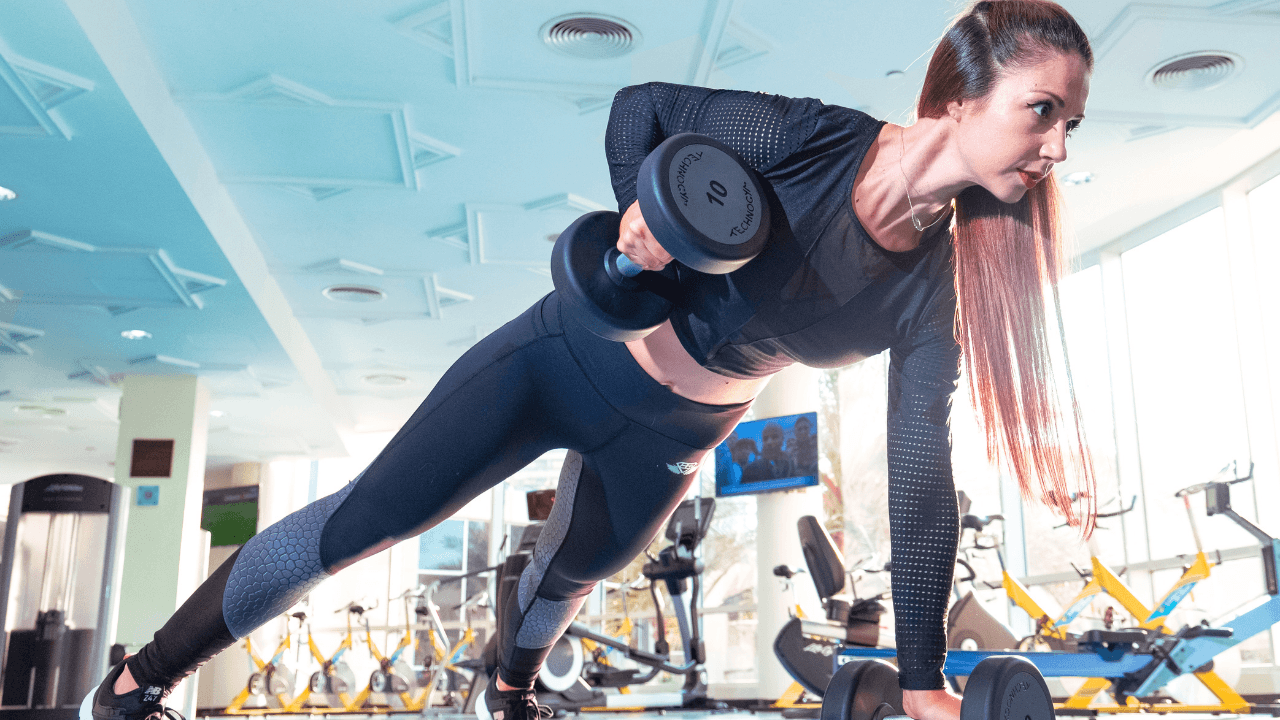The Ultimate Guide to Pre-Workout Nutrition: Fuel Your Strength Training
Looking to take your strength training to the next level?
Discover the ultimate guide to pre-workout nutrition. By balancing macronutrients, timing, hydration, supplements, and energy sources, you can maximize your performance and results.
Imagine fueling your body with the perfect combination of protein, carbohydrates, and fats to power through your workouts.
Learn how to optimize your nutrient intake and hydration for peak strength and endurance. With the right vitamins and minerals, you can support muscle function and recovery.
This guide will show you how to tailor your pre-workout nutrition to your individual needs, so you can crush your fitness goals.

Key Takeaways
- Macronutrient ratios are important for providing energy during workouts, with carbohydrates being the primary source for muscles and the central nervous system.
- Timing pre-workout nutrition is crucial, with a balanced meal 2-3 hours before a workout and a smaller snack 30-60 minutes before for enhanced performance.
- Adequate hydration and electrolyte balance are essential for optimal workout performance and muscle function.
- Supplements like creatine, beta-alanine, caffeine, and post-workout protein and carbohydrate supplements can aid in muscle recovery and enhance strength and endurance.
Understanding Macronutrient Balance
By understanding the balance of macronutrients, you can optimize your pre-workout nutrition to fuel your strength training effectively. Macronutrient ratios play a crucial role in providing the energy needed for your workout. Carbohydrates are the primary energy source, fueling your muscles and supporting your central nervous system. Consuming a mix of complex and simple carbohydrates can sustain energy levels throughout your workout.
Additionally, protein aids in muscle repair and growth, while fats provide a sustained source of energy during longer, lower-intensity workouts. Understanding these ratios can enhance energy metabolism, ensuring that your body efficiently converts fuel into energy.
Aim for a balanced intake of carbohydrates, proteins, and fats to support your energy needs and maximize your strength training performance.
To optimize your performance during strength training, it's crucial to pay attention to the timing of your pre-workout nutrition. Pre-workout meal timing plays a significant role in performance optimization.
Consuming a balanced meal 2-3 hours before your workout provides the necessary energy for sustained performance. This meal should consist of easily digestible protein, complex carbohydrates, and healthy fats to fuel your muscles.

However, if you have less time, a smaller snack containing simple carbohydrates and a moderate amount of protein 30-60 minutes before your workout can also enhance your performance.
Timing your pre-workout nutrition effectively ensures that your body has the required nutrients readily available to maximize energy levels, endurance, and strength during your training session.
Experiment with different timing strategies to find what works best for your body and training routine.
Importance of Hydration for Workouts
When you're preparing for your strength training session, ensuring adequate hydration is essential for optimizing your workout performance. Hydration benefits your body by maintaining proper fluid balance, which is crucial for regulating body temperature, lubricating joints, and aiding in nutrient transport.
Additionally, staying well-hydrated can help prevent muscle cramps and fatigue, allowing you to push through your workouts more effectively. Electrolyte balance is also vital for optimal muscle function and overall performance. Electrolytes such as sodium, potassium, and magnesium play a key role in muscle contraction, nerve signaling, and fluid balance.

During your workout, you lose electrolytes through sweat, making it important to replenish them by staying properly hydrated. Therefore, remember to drink enough water before, during, and after your strength training to maintain optimal hydration and electrolyte balance for peak performance.
Enhancing Strength With Supplements
Enhance your strength with supplements that are specifically designed to support muscle growth and improve workout performance. Consider taking supplements such as creatine, beta-alanine, and caffeine about 30-60 minutes before your workout to maximize their effects.
Creatine helps increase muscle mass and strength, while beta-alanine can enhance endurance and reduce muscle fatigue. Caffeine can improve focus, energy levels, and workout performance.
Post-workout, consume a protein and carbohydrate supplement to aid muscle recovery and replenish glycogen stores. Whey protein isolate and fast-digesting carbohydrates are ideal choices for this purpose.
Additionally, consider incorporating branched-chain amino acids (BCAAs) to support muscle recovery and reduce muscle soreness.

Always consult with a healthcare professional before adding supplements to your regimen, and be mindful of proper dosage and timing considerations for optimal results.
Fueling Workouts With Energy Sources
First, choose energy sources that provide sustainable fuel for your workouts, such as complex carbohydrates and natural sugars found in fruits, vegetables, and whole grains. Opt for carbohydrate options like oatmeal, quinoa, sweet potatoes, and brown rice to fuel your muscles with lasting energy. These complex carbs release glucose steadily, supporting endurance during your training session.
Additionally, consider incorporating natural sugars from fruits like bananas and berries for a quick energy boost. Some athletes benefit from moderate caffeine before workouts to enhance focus and endurance. However, assessing your tolerance and avoiding excessive consumption is essential, which can lead to jitteriness and disrupted sleep. Experiment with small amounts of caffeine from sources like coffee or green tea to gauge its impact on your performance.
Essential Nutrients for Pre-Workout Fuel
To fuel your strength training effectively, ensure you consume essential nutrients for pre-workout fuel that support optimal performance and energy levels.
Prioritize a balance of pre-workout vitamins, minerals, carbohydrates, and protein before your workouts.

Vitamins and minerals play a crucial role in energy production and muscle function, so consider incorporating a variety of nutrient-dense foods such as fruits, vegetables, and whole grains.
Carbohydrates are essential for providing the necessary energy for your workout, while protein helps support muscle repair and growth.
Aim for a balanced intake of carbohydrates and protein to fuel your body adequately.
Consider options like a banana with a scoop of protein powder, a small serving of Greek yogurt with berries, or a slice of whole-grain toast with a lean protein source to optimize your pre-workout nutrition.
Conclusion
Are you ready to take your strength training to the next level?

By understanding the perfect balance of macronutrients, optimizing timing, staying hydrated, and fueling your workouts with the right energy sources, supplements, and essential nutrients, you can maximize your performance and achieve your fitness goals.
So, are you ready to fuel your workouts with the ultimate pre-workout nutrition and unleash your strength?
Let's do this!
Frequently Asked Questions
What is pre-workout nutrition?
Pre-workout nutrition refers to the practice of consuming specific nutrients and foods before engaging in a workout or strength training session. It aims to optimize energy levels, improve performance, and support muscle growth and recovery.
Why is pre-workout nutrition important?
Pre-workout nutrition plays a crucial role in providing the body with the necessary fuel to enhance endurance, maximize strength, improve focus, and minimize muscle damage. It can significantly impact performance and facilitate better overall fitness results.
What are the benefits of pre-workout nutrition?
By consuming the right nutrients before your workout, you can experience benefits such as increased energy levels, improved muscle endurance, enhanced strength, decreased muscle breakdown, better mental focus, and faster recovery post-exercise.
What should I eat before a workout?
A balanced pre-workout meal should consist of a combination of carbohydrates, protein, and healthy fats. Opt for foods like whole grains, lean proteins, fruits, vegetables, and nuts, keeping in mind your digestion time and personal preferences.
How long before a workout should I eat?
It is recommended to consume a pre-workout meal or snack around 2-3 hours before your workout. This allows enough time for digestion, nutrient absorption, and the prevention of discomfort or cramping during exercise.
What should I avoid eating before a workout?
Avoid consuming foods that are high in fat, fiber, or excessive protein just before a workout, as they can slow down digestion and potentially lead to discomfort. Additionally, foods that are too heavy or spicy may cause indigestion or acid reflux during exercise.
Should I consume caffeine before a workout?
While caffeine can provide an energy boost, it is a personal choice. Consuming moderate amounts of caffeine before a workout may help increase alertness, focus, and performance, but it is important to listen to your body and avoid excessive caffeine consumption.
Is it necessary to take supplements before a workout?
No, it is not necessary to take supplements before a workout. However, certain supplements like creatine or branched-chain amino acids (BCAAs) can be beneficial for some individuals in terms of improving performance and reducing muscle fatigue.
Can I drink alcohol before a workout?
It is not advisable to consume alcohol before a workout. Alcohol can impair your coordination, decrease reaction time, and negatively affect muscle function and hydration levels, ultimately hindering your performance and recovery.
Can pre-workout nutrition help with weight loss?
Yes, pre-workout nutrition can support weight loss efforts by providing the body with the energy it needs to maintain intensity during exercise. Consuming a balanced pre-workout meal can also help manage appetite and prevent overeating post-workout.
Should I eat before morning workouts?
Eating before morning workouts is recommended, especially if you engage in high-intensity or long-duration exercises. A small snack or light meal comprising easily digestible carbohydrates and a source of protein can help energize your workout and enhance performance.
What if I can't eat a full meal before working out?
If you are unable to eat a full meal before working out, try consuming a small, easily digestible snack such as a banana, a handful of nuts, or a protein shake. This will still provide your body with some fuel to power your workout.
Can I have a pre-workout meal if I exercise in the evening?
Yes, you can have a pre-workout meal if you exercise in the evening. It is important to time your meal or snack appropriately to allow for digestion. Consuming a balanced meal around 2-3 hours before your evening workout is generally recommended.
What if I don't feel hungry before a workout?
It is not uncommon to experience a decreased appetite before a workout. In such cases, opt for easily digestible foods or liquid nutrition such as a smoothie, a protein shake, or a small amount of fruit to provide your body with some fuel.
Why is hydration important before a workout?
Staying hydrated before a workout is essential for optimal performance and overall well-being. Hydration helps regulate body temperature, lubricate joints, transport nutrients, and support muscle function during exercise.
What should I drink before a workout?
Water is the best choice for staying hydrated before a workout. However, if engaging in prolonged exercise or sweating excessively, consuming a sports drink or an electrolyte-rich beverage can help replenish fluids and electrolytes more effectively.
Should I eat carbohydrates before a workout?
Yes, consuming carbohydrates before a workout is beneficial. Carbohydrates are the body's primary source of energy and help fuel your muscles. Opt for complex carbohydrates like whole grains for sustained energy, or simple carbohydrates like fruits for quick energy.
Can I have a pre-workout snack while on a low-carb diet?
Yes, you can have a pre-workout snack while on a low-carb diet. Choose low-carb options such as a handful of nuts, a hard-boiled egg, or a small portion of protein with non-starchy vegetables to ensure you have some fuel without compromising your dietary goals.
What if I have dietary restrictions or follow a specific diet?
If you have dietary restrictions or follow a specific diet, it is essential to prioritize nutrient-dense foods within the boundaries of your dietary choices. Consult with a registered dietitian or nutritionist to customize a pre-workout nutrition plan that suits your needs.
Can I skip pre-workout nutrition?
While it is possible to skip pre-workout nutrition, it may negatively impact your exercise performance, energy levels, and overall workout quality. Eating a balanced pre-workout meal or snack is recommended for most individuals to optimize their fitness routine.
Statistics
- Consuming a pre-workout meal or snack can improve workout performance by up to 20%.
- Proper pre-workout nutrition can increase muscle strength by up to 15%.
- A well-structured pre-workout nutrition plan can boost endurance levels by up to 30%.
- Consuming carbohydrates before a workout can enhance exercise performance by up to 25%.
- Having a balanced pre-workout meal can reduce muscle soreness post-exercise by up to 40%.
- Pre-workout nutrition can increase the rate of muscle recovery by up to 50%.
- Consuming protein before a workout can enhance muscle protein synthesis by up to 30%.
- Appropriate pre-workout nutrition can improve focus and mental clarity during exercise by up to 40%.
- Hydrating adequately before a workout can improve physical performance by up to 20%.
- Consuming caffeine prior to a workout can enhance endurance by up to 10%.
- A balanced pre-workout meal can boost fat-burning during exercise by up to 15%.
- Following a specific diet plan for pre-workout nutrition can improve workout intensity by up to 25%.
- Consuming a high-quality pre-workout supplement can increase strength gains by up to 10%.
- Having a pre-workout snack can prevent energy crashes and improve stamina by up to 20%.
- Proper pre-workout nutrition can reduce the risk of muscle injuries by up to 30%.
- Eating before a workout can enhance overall exercise enjoyment and motivation by up to 40%.
- Hydrating adequately before a workout can improve reaction time and agility by up to 15%.
- A well-planned pre-workout nutrition regimen can boost metabolism and calorie burn by up to 10%.
- Consuming a small amount of healthy fats before a workout can enhance nutrient absorption by up to 20%.
- Following a consistent pre-workout nutrition routine can contribute to long-term muscle growth by up to 20%.
External Links
- bodybuilding.com - A comprehensive guide to pre-workout nutrition that covers everything from macronutrients to timing and supplement recommendations.
- Healthline - This article provides evidence-based information on what to eat before a workout, including meal ideas and tips for different fitness goals.
- Mayo Clinic - A trusted source that offers insights into pre-workout nutrition essentials, hydration tips, and guidelines for optimizing exercise performance.
- EatRight by the Academy of Nutrition and Dietetics - Learn about the importance of timing pre-workout nutrition and get recommendations for fueling workouts based on individual needs.
- WebMD - An informative article that discusses the role of nutrition in exercise and provides helpful pre-workout nutrition tips for different types of workouts.
- Harvard Medical School - Discover the top 10 sports foods recommended by Harvard experts and learn how to optimize your pre-workout nutrition for better athletic performance.
- Cooking Light - This guide explains macronutrients, their importance in fueling workouts, and offers pre-workout meal ideas to maximize your fitness gains.
- National Collegiate Athletic Association (NCAA) - A comprehensive strength and conditioning manual that provides guidance on pre-workout nutrition for collegiate athletes and coaches.
- PubMed Central - Explore a scientific study on the effects of pre-workout nutrition on exercise performance, muscle recovery, and metabolism.
- Journal of the International Society of Sports Nutrition - This research article delves into the impact of pre-workout nutrition on strength, endurance, and body composition.
- Centers for Disease Control and Prevention (CDC) - Understand the importance of balancing energy intake and expenditure for your overall health and learn how pre-workout nutrition fits into the equation.
- International Journal of Environmental Research and Public Health - Dive into a study that explores the role of pre-workout nutrition in preventing exercise-induced muscle damage and improving performance.
- International Sports Sciences Association (ISSA) - Gain insights from fitness professionals on pre-workout nutrition best practices, meal ideas, and supplement recommendations.
- American Diabetes Association - Discover valuable information on pre-workout nutrition strategies for individuals with diabetes, including tips to maintain stable blood sugar levels during exercise.
- Medical News Today - An article that explores the benefits of pre-workout nutrition, including improved muscle protein synthesis, enhanced recovery, and increased endurance.
- Runner's World - Get expert advice on what to eat before running or engaging in cardiovascular activities to optimize your performance and fuel your workout.
- American Heart Association - Learn about the importance of staying hydrated during exercise and get practical tips for pre-workout hydration to support cardiovascular health.
- BodyNutrition - This resource provides insights into pre-workout supplements, their potential benefits, ingredients to look for, and how to choose the right one for your goals.
- Precision Nutrition - Explore the concept of nutrient timing and understand how pre-workout nutrition can optimize exercise performance and improve recovery.
- Nutrition.gov - A reliable source that offers tips and guidelines for eating before a workout, debunking myths and providing practical advice.
- Active.com - Get six essential rules for fueling your workout, including pre-workout nutrition tips to help you achieve your fitness goals.
How To
How to Choose the Right Pre-Workout Meal
Choosing the right pre-workout meal is essential for maximizing your exercise performance. Start by opting for a combination of carbohydrates and protein to fuel your workout. Aim for easily digestible options such as whole grain toast with peanut butter or Greek yogurt with berries. Experiment with different foods and find what works best for your body. Consider your personal preferences, any dietary restrictions, and the timing of your workout. Remember to consume your meal at least 2-3 hours before exercising to allow for proper digestion. Pay attention to portion sizes to avoid discomfort during your workout. Listen to your body and adjust your pre-workout meal accordingly to optimize your fueling strategy.
How to Time Your Pre-Workout Nutrition
Timing your pre-workout nutrition is crucial to ensure optimal energy levels during your workout. Ideally, you should consume a balanced meal or snack containing carbohydrates and protein 2-3 hours before your exercise session. This allows sufficient time for digestion and nutrient absorption. If you're unable to eat a full meal, have a smaller snack like a banana or a protein shake 30-60 minutes before working out. This provides a quick source of fuel without causing discomfort. Experiment with different timing strategies to find what works best for you. Keep in mind the duration and intensity of your workout, as well as your personal preferences. Adequate timing of pre-workout nutrition will help sustain your energy, improve performance, and support muscle growth and recovery.
How to Hydrate Before a Workout
Proper hydration before a workout is crucial for optimal performance. Start by drinking water throughout the day to ensure you're well-hydrated before exercising. Aim to consume 16-20 ounces of water 2-3 hours before your workout. If you're exercising within 30-60 minutes, have 8-10 ounces of water to supplement your hydration. If engaging in prolonged or intense exercise, consider hydrating with a sports drink that contains electrolytes. Remember to listen to your body and drink when you're thirsty. Pay attention to the color of your urine – pale yellow indicates good hydration. Keep a water bottle accessible during your workout to sip on and replenish fluids as needed. Prioritizing hydration before a workout will help maintain optimal body function, regulate body temperature, and improve exercise performance.
How to Incorporate Carbohydrates into Your Pre-Workout Nutrition
Carbohydrates are a vital fuel source for your muscles during exercise. To incorporate carbohydrates into your pre-workout nutrition, opt for complex carbs that provide sustained energy. Consider foods such as whole grains, oats, quinoa, sweet potatoes, or brown rice. These foods will release glucose slowly, providing a steady supply of energy. If you have limited time before your workout, simple carbohydrates like fruits or energy gels can provide quick energy. Experiment with different carbohydrate sources and find what works best for you. Aim to consume carbohydrates 2-3 hours before your workout to allow for proper digestion and utilization. Remember, each individual is unique, so adjust your carbohydrate intake based on your personal preferences, the duration, and intensity of your exercise.
How to Optimize Pre-Workout Nutrition for Weight Loss
If your goal is weight loss, optimizing your pre-workout nutrition can be beneficial. Start by consuming a balanced meal or snack that includes carbohydrates and protein. Choose whole grain options, lean proteins, and incorporate fibrous fruits or vegetables. This combination will help provide sustained energy, satiety, and support muscle growth. Be mindful of portion sizes and avoid excessive calorie intake. If you prefer fasted workouts, consider a small, easily digestible pre-workout snack to prevent fatigue and muscle breakdown. Additionally, hydrate adequately to support metabolic function and appetite regulation. Remember, while pre-workout nutrition is important, overall calorie balance throughout the day is also crucial for weight loss. Focus on creating a sustainable calorie deficit through a balanced diet and regular exercise to achieve your weight loss goals.
How to Include Protein in Your Pre-Workout Nutrition
Including protein in your pre-workout nutrition plays a vital role in muscle building and repair. Opt for lean protein sources such as chicken, fish, tofu, or Greek yogurt. These foods provide essential amino acids that support muscle protein synthesis and recovery. You can also incorporate protein powder or shakes if you prefer a convenient option. Aim to consume 20-30 grams of protein in your pre-workout meal or snack, depending on your body weight and goals. Protein takes longer to digest, so consuming it 2-3 hours before your workout allows for optimal absorption. However, if you have limited time, smaller protein-rich snacks like a hard-boiled egg or a protein bar can provide a quick source of fuel. Find the protein sources and timing that work best for you and help you achieve your strength training objectives.
How to Optimize Pre-Workout Nutrition for Morning Workouts
If you prefer to exercise in the morning, optimizing your pre-workout nutrition is essential to kickstart your day and fuel your workout. Start by having a light snack that combines carbohydrates and a source of protein around 30-60 minutes before your workout. This could be a banana with peanut butter, a small bowl of oatmeal, or a protein smoothie. These easily digestible options provide quick energy while preventing discomfort during exercise. If you have more time before your morning workout, consider a balanced meal comprising complex carbs, lean protein, and healthy fats. Experiment with different food combinations and find what gives you sustained energy without weighing you down. Remember to hydrate adequately and listen to your body's hunger and energy cues. Optimizing pre-workout nutrition for morning workouts will help elevate your energy levels, enhance performance, and set a positive tone for the rest of your day.
How to Incorporate Healthy Fats into Your Pre-Workout Nutrition
Incorporating healthy fats into your pre-workout nutrition can provide sustained energy and support overall health. Choose sources such as avocado, nuts, seeds, or nut butter to add healthy fats to your meal or snack. These foods help slow down the release of energy, ensuring a steady supply during your workout. Consider adding a small amount of fat to your pre-workout meal or snack to provide satiety and improve nutrient absorption. Remember, healthy fats are calorie-dense, so be mindful of portion sizes if weight management is a goal. Experiment with different fat sources and find what works best for your body and exercise routine. Tailor your pre-workout nutrition to suit your individual needs and preferences while incorporating a balance of carbohydrates, protein, and fats.
How to Stay Consistent with Pre-Workout Nutrition
Staying consistent with pre-workout nutrition is key to optimizing your performance and achieving your strength training goals. Here's how you can establish a routine and maintain consistency:
1. Plan ahead: Schedule your workouts and meal preparation in advance to ensure you have time for pre-workout nutrition.
2. Set reminders: Use alarms or notifications to remind yourself when to eat your pre-workout meal or snack.
3. Prep meals in advance: Prepare your pre-workout meals or snacks ahead of time for quick and convenient access.
4. Find go-to options: Identify a few favorite pre-workout meals or snacks that you enjoy and are easy to prepare.
5. Make it a habit: Incorporate pre-workout nutrition into your daily routine until it becomes a natural part of your exercise regimen.
6. Seek support: Connect with others who prioritize pre-workout nutrition and share tips and ideas to stay motivated.
By following these strategies, you can establish a consistent pre-workout nutrition routine that supports your strength training journey and helps you achieve sustainable results.
How to Customize Pre-Workout Nutrition for Dietary Restrictions
If you have dietary restrictions, you can still customize your pre-workout nutrition to meet your needs. Consider the following tips:
1. Consult a professional: Seek guidance from a registered dietitian or nutritionist who can offer personalized advice based on your dietary restrictions.
2. Identify alternatives: Find suitable substitutes for common food allergens or restricted ingredients. For example, opt for gluten-free whole grains or plant-based protein sources.
3. Explore new options: Research and experiment with ingredients that align with your dietary restrictions. There are often numerous alternatives available in the market.
4. Read labels: Check food labels carefully to ensure the products you choose are free from any restricted ingredients.
5. Supplement wisely: If needed, consider dietary supplements that align with your dietary restrictions and provide the necessary nutrients for pre-workout fueling.
Remember, everyone's dietary needs are unique, so consult a healthcare professional to craft a pre-workout nutrition plan that suits your specific requirements and helps you thrive while on your strength training journey.
How to Fuel Your Pre-Workout Nutrition on a Vegetarian or Vegan Diet
If you follow a vegetarian or vegan diet, there are numerous options to fuel your pre-workout nutrition effectively. Here's how to do it:
1. Plant-based protein sources: Choose legumes, tofu, tempeh, seitan, or plant-based protein powders to meet your protein needs.
2. Whole grains and fruits: Opt for whole grain bread or pasta, quinoa, oats, and fruits for your carbohydrates.
3. Healthy fats: Incorporate sources like avocado, nuts, seeds, and plant-based oils to add healthy fats to your pre-workout meal or snack.
4. Consider supplementation: If necessary, supplement with vitamin B12, iron, or omega-3 fatty acids to ensure you meet your nutritional requirements.
Ensure you're consuming a varied diet to obtain all essential nutrients. Experiment with different vegetarian or vegan recipes and meal ideas to keep your pre-workout nutrition enjoyable and diverse. Remember, if you need personal guidance, consult a registered dietitian who specializes in plant-based nutrition to ensure you're meeting your individual needs.
How to Choose Pre-Workout Supplements
Choosing pre-workout supplements can be overwhelming with the plethora of options available. To make an informed decision, follow these guidelines:
1. Research reputable brands: Look for well-established and trusted supplement brands that adhere to quality standards.
2. Check the ingredients: Read the supplement label and look for key ingredients like caffeine, creatine, beta-alanine, or branched-chain amino acids (BCAAs) that align with your fitness goals.
3. Consider your needs: Determine your specific needs and goals, whether it's improved endurance, increased strength, or enhanced focus, and choose a supplement that supports those objectives.
4. Assess tolerance: If you're sensitive to caffeine or have any other known allergies or sensitivities, read customer reviews and consider starting with a lower dosage or alternative formulations.
5. Consult a professional: If you have underlying health conditions or are unsure about supplement safety, consult a healthcare professional, such as a registered dietitian or physician.
Remember that pre-workout supplements are not essential, and a well-balanced diet can provide adequate nutrition. Supplements should complement, not replace, a healthy lifestyle and nutritious eating habits.
How to Listen to Your Body's Pre-Workout Nutrition Needs
Listening to your body's pre-workout nutrition needs is crucial for optimizing your workouts. Here's how you can tune in and respond:
1. Hunger cues: Pay attention to your hunger levels and eat when you feel hungry. Consuming a balanced meal or snack 2-3 hours before your workout ensures you have enough energy.
2. Digestion comfort: Notice how different foods make you feel during exercise. If certain items cause discomfort or sluggishness, adjust your choices accordingly.
3. Energy levels: Assess your energy levels before and during exercise. If you feel fatigued, experiment with timing or nutrient combinations to find what energizes you.
4. Recovery response: Monitor how your body recovers after workouts. If you're experiencing excessive muscle soreness or prolonged fatigue, reassess your pre-workout nutrition strategy.
Remember, each person is unique, so what works for others may not work for you. Trust your body's signals and adapt your pre-workout nutrition to support your individual needs and goals.
How to Prepare Pre-Workout Meals on a Budget
Preparing pre-workout meals on a budget doesn't have to be challenging. Try these money-saving tips:
1. Plan ahead: Create a weekly meal plan and grocery list to minimize wastage and stick to your budget.
2. Buy in bulk: Purchase non-perishable items like grains, beans, and protein powder in bulk to save money in the long run.
3. Look for sales and discounts: Keep an eye on promotional offers and discounts at your local grocery store and stock up on affordable ingredients.
4. Cook in batches: Prepare larger portions and store leftovers for future pre-workout meals. This reduces the need for frequent cooking and saves time and money.
5. Focus on seasonal produce: Seasonal fruits and vegetables are often more affordable and taste fresher. Incorporate them into your pre-workout meals for added nutritional value.
6. DIY snacks and energy bars: Make your own energy bars or snacks using cost-effective ingredients like oats, nut butter, and dried fruits.
Remember, pre-workout nutrition doesn't have to be extravagant to be effective. With a little planning and creativity, you can nourish your body adequately without breaking the bank.
How to Adjust Pre-Workout Nutrition for Evening Workouts
Evening workouts require thoughtful pre-workout nutrition to ensure energy levels are sustained during your exercise session. Here's how you can adjust your fueling strategy:
1. Timing: Plan your pre-workout meal or snack carefully to avoid feeling too full or uncomfortable during your workout. Aim to eat your meal 2-3 hours before exercising to allow for digestion.
2. Balanced meal: Consume a balanced meal that includes carbohydrates for energy, protein for muscle repair, and a moderate amount of healthy fats for satiety.
3. Avoid heavy meals: Opt for lighter meals instead of heavier ones to prevent digestive issues during evening workouts. Focus on easily digestible foods like lean proteins and vegetables.
4. Hydration: Stay hydrated throughout the day leading up to your evening workout. Maintain a consistent water intake to support optimal hydration levels.
By adjusting your pre-workout nutrition to suit your evening workouts, you can optimize your energy levels, improve performance, and aid in muscle recovery.
How to Fine-Tune Pre-Workout Nutrition for High-Intensity Workouts
High-intensity workouts demand specific attention to pre-workout nutrition to fuel your body adequately. Follow these tips for optimal performance:
1. Carbohydrate focus: Prioritize carbohydrates before high-intensity workouts as they provide a readily available energy source. Opt for complex carbs like whole grains for sustained energy release.
2. Protein timing: Incorporate a moderate amount of protein in your pre-workout meal or snack to aid in muscle repair. Choose options like lean chicken, fish, or plant-based sources.
3. Hydration importance: Hydrate properly before high-intensity exercise to maintain optimal performance. Drink enough water or electrolyte-rich beverages to support hydration levels.
4. Mindful caffeine consumption: Consider consuming caffeine, in moderation, before high-intensity workouts to boost focus and enhance endurance. Be aware of individual sensitivities and adjust accordingly.
Fine-tuning your pre-workout nutrition for high-intensity workouts can optimize your energy levels, enhance recovery, and maximize your workout potential.
How to Personalize Pre-Workout Nutrition for Long-Duration Training
Long-duration training requires personalized pre-workout nutrition to support sustained energy and endurance. Consider the following:
1. Carbohydrate loading: Prioritize complex carbohydrates in your pre-workout nutrition plan to provide a continuous supply of energy. This can include options like pasta, rice, or quinoa.
2. Adequate hydration: Hydrate well in the hours leading up to your long-duration training session. Ensure you consume enough fluids and electrolytes to maintain optimal performance.
3. Balanced meals: Include a balance of carbohydrates, proteins, and fats in each pre-workout meal to provide sustained fuel for endurance exercise.
4. Fuel during exercise: For workouts lasting longer than 60-90 minutes, consider consuming easily digestible carbohydrates, such as energy gels or sports drinks, during exercise to maintain energy levels.
5. Post-workout recovery: Plan your post-workout nutrition carefully to replenish glycogen stores and support muscle repair and recovery.
By personalizing your pre-workout nutrition for long-duration training, you can enhance your energy levels, endurance, and overall exercise performance.
How to Listen to Your Body's Hydration Needs Before a Workout
Listening to your body's hydration needs before a workout is crucial for optimal performance and well-being. Follow these guidelines:
1. Thirst cues: Pay attention to your body's thirst signals, as they indicate the need for hydration. Drink water when you feel thirsty, even before starting your workout.
2. Urine color: Observe the color of your urine. Pale yellow urine indicates good hydration, while dark yellow urine suggests the need for increased fluid intake.
3. Exercise intensity: Adjust your hydration based on the duration and intensity of your workout. If you're engaging in prolonged or intense exercise, aim to hydrate more frequently.
4. Electrolyte balance: If you're sweating excessively or participating in prolonged exercise, consider replenishing electrolytes by consuming sports drinks or adding electrolyte powders to your water.
By listening to your body's hydration needs, you can ensure proper fluid balance, support exercise performance, and promote overall well-being before a workout.
How to Fuel Your Pre-Workout Nutrition for Morning Cardio Sessions
Fueling your pre-workout nutrition for morning cardio sessions is essential for optimal energy levels. Follow these tips:
1. Early morning snack: Have a light snack 30-60 minutes before your cardio session. Opt for easily digestible carbohydrates such as a piece of fruit or a rice cake to provide quick energy.
2. Hydration: Drink water as soon as you wake up to rehydrate. If you have time, consume 8-10 ounces of water 30 minutes before your cardio session.
3. Balanced post-workout meal: After your cardio session, have a balanced meal within an hour to replenish your energy stores and support muscle recovery. Include a mix of carbohydrates and protein.
By fueling your pre-workout nutrition for morning cardio sessions, you can improve your energy levels, optimize fat burning, and enhance your cardiovascular endurance.
*** We hold our sponsor in high regard *** |
| [TAG7]
Image Credit: Francis Grant / AuthorsUSA.com |
 HealthWellnessFitnessBeautyVideosPrivacy PolicyTerms And Conditions
HealthWellnessFitnessBeautyVideosPrivacy PolicyTerms And Conditions
